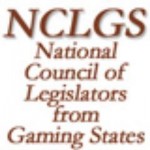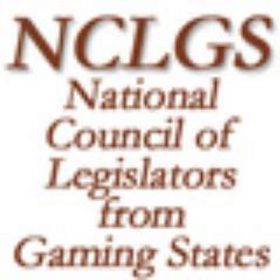NCLGS Offers Position Paper on Federal Online Gambling Legislation
The National Council of Legislators from Gaming States (NCLGS) has authored a position paper designed for consideration by members of United States Congress as they continue debating the pros and cons of federal-level online gambling legislation within the US. The NCLGS, though by definition comprised of members from states where some form of gambling is legal (which in practice excludes only Utah and Hawaii legislators), will have its recommendations discussed in Congress in early January.
 The NCLGS paper was released at the recent Florida Gaming Conference and will be introduced for US Congressional discussion by US Rep. Jim Waldman (FL), a member of the council. Included are a handful of talking points of greatest importance to the gaming-states legislators, along with a 10-topic, general-interest framework for idealized federal iGaming regulation.
The NCLGS paper was released at the recent Florida Gaming Conference and will be introduced for US Congressional discussion by US Rep. Jim Waldman (FL), a member of the council. Included are a handful of talking points of greatest importance to the gaming-states legislators, along with a 10-topic, general-interest framework for idealized federal iGaming regulation.
The NCLGS and its members take no pro or con view regarding internet gambling in particular. The council bills itself as “the only non-partisan organization of state lawmakers that meets on a regular basis to discuss issues in regard to gaming.” The NCLGS also states, at its internet home, “NCLGS does not support or oppose gaming, but supports effective regulation and believes that decisions related to gaming should be made by the citizens of the individual states and their elected officials.”
That view is consistent with a large majority of US state legislative views, which believe in general that efforts such as the Sheldon Adelson-backed RAWA (Restoration of America’s Wire Act), is an infringement upon states’ traditional constitutional rights to govern themselves in matters of social behavior, including gambling.
The NCLGS position paper mirrors in many forms a draft statement issued by the all-inclusive National Conference of State Legislators (NCLS). Last year, both the NCHGS and the NCLS came out strongly in opposition to the proposed RAWA, which is rumored to be up for federal consideration during the current end-of-year “lame duck” session.
According to an NCLGS presser, the framework created by the group was designed to focus on these general priorities:
- foster effective regulation and cooperation among states;
- promote strong, stable, and diverse state economies;
- protect both states that wish to participate in Internet gaming and those who do not;
- facilitate cooperation and information exchange among state policymakers and gaming regulators;
- support uniformity in Internet gaming legislation while protecting states’ rights to regulate gaming within their respective states;
- establish minimum “benchmark” requirements for states that wish to adopt Internet gaming;
- support the establishment of strong consumer protection and responsible gaming standards;
- research differing proposals and views regarding taxation and revenue sharing for interstate online gaming;
- explore differing views on appropriate regulatory models and structures for Internet gaming.
The actual framework as drafted by the NCLGS has been under development since May, with modifications and amendments following an ongoing period of comments and discussion open both to legislators and the general public. Here are the ten areas of interest identified within the group’s “Framework” that it believes defines the general scope of proper internet gambling regulation:
player protections;
problem gambling protections;
taxation;
licensing;
enforcement;
payment processing;
age verifcation, geolocation, and player identification;
regulatory authority;
multi-jurisdictional agreements;
game choice and legality.
Each of the ten topics in the above is then detailed further within the framework. For example, the section on enforcement calls for three primary goals: anti-fraud and anti-money laundering policies; authority for regulators to define cheating (within the games themselves); and effective blocking of illegal websites.
According to the framework’s overview, “NCLGS believes that the standards contained in the framework should serve as a guideline, but should also evolve in response to emerging state needs, trends, and advances in technology—in order to be of the greatest assistance to states. The framework will provide a model for policymakers considering enacting Internet gaming legislation within their respective states, as well as multi-jurisdictional Internet gaming initiatives.”
Whether or not the interests of groups such as NCLGS and NCLS are fully considering during RAWA discussions remains to be seen, but it is the interests of individual US states themselves that stand as the strongest bulwark against US federal legislative efforts. RAWA is viewed not only as federal-level overreach by most state legislatures, and its passage in its current form would represent a severe financial setback for many states that view growth in the regulated online gaming sector as a possible source of new tax revenue.




















COMMENTS